Remembering Rumi: Turkey honours Sufi mystic poet with whirling dervishes
Each year, thousands of people travel to the Turkish city of Konya to attend a weeklong series of events and ceremonies that mark the death of the 13th-century Islamic poet, scholar and Sufi mystic Jalaladdin Rumi
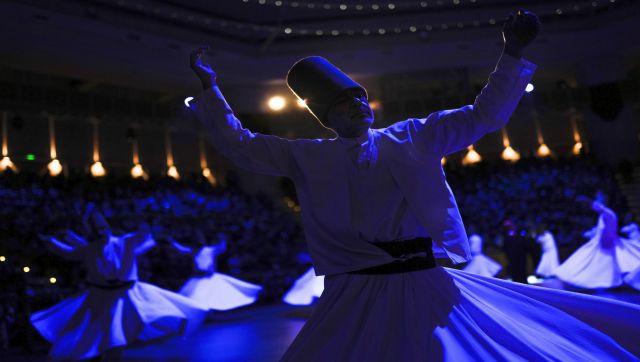)
The city of Konya in Turkey marked the death of the 13th-century Islamic poet, scholar and Sufi mystic Jalaladdin Rumi with a ceremony that his followers believe is his union with God. The main feature of the “Sheb-i Arus” or “night of the union,” is an enchanting ritual performed by the dervishes of the Mevlevi order — more commonly known as the whirling dervishes. AP
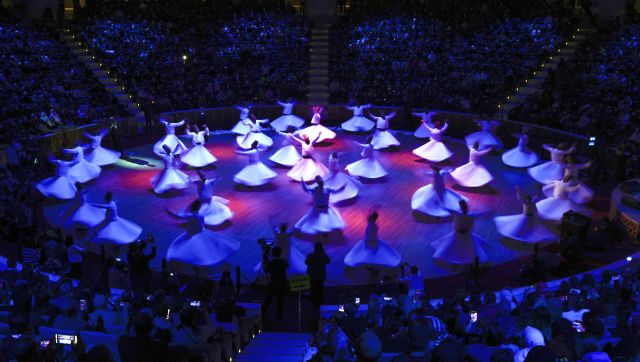)
The rite begins with a recital of prayers and verses from the Quran. The dervishes, dressed in long white robes symbolising shrouds, black cloaks symbolising tombs and long headgear symbolising tombstones, then rise from the ground to salute each other. Leaving their cloaks on the ground, they take their places around the circular floor and begin to spin to reach a trance-like state that they believe unites them with God. The ritual is performed to the sound of chanting and music from a reed flute and other instruments. AP
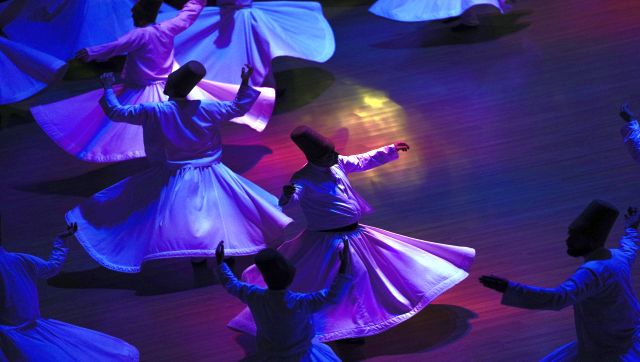)
Rumi, who is known as Mevlana in Turkey, was born in Balkh — which is now in Afghanistan — in 1207, but settled in Konya, where he died on 17 December, 1273. His son, Sultan Veled, established the Mevlevi order of the mystical form of Islam, Sufism, after his death. The dervishes’ rituals are regarded as a cultural heritage. In fact, in 2005, the United Nations’ cultural body, UNESCO, proclaimed the dervishes’ ritual a masterpiece of “the oral and intangible heritage of humanity.” AP
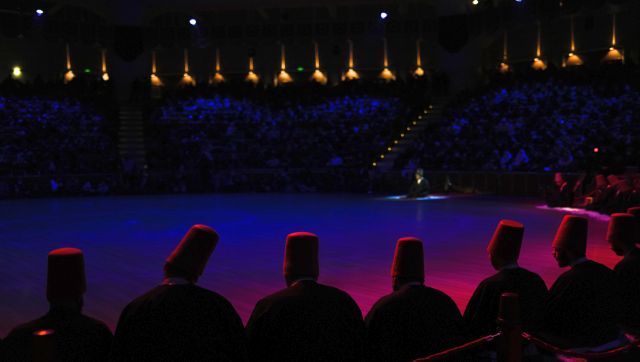)
As they whirl, the dervishes’ right hands are symbolically turned upward toward God, while their left hands are turned downward to Earth. The ceremony ends as it started, with the recital of prayers. AP
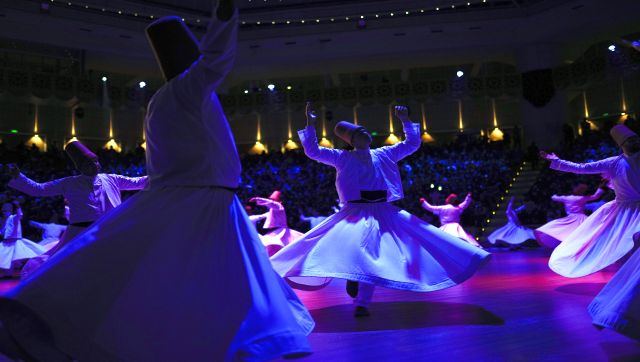)
This year, visitors were able to return to the ceremonies honouring Rumi, after the coronavirus pandemic forced last year’s commemorations to be held without spectators. AP
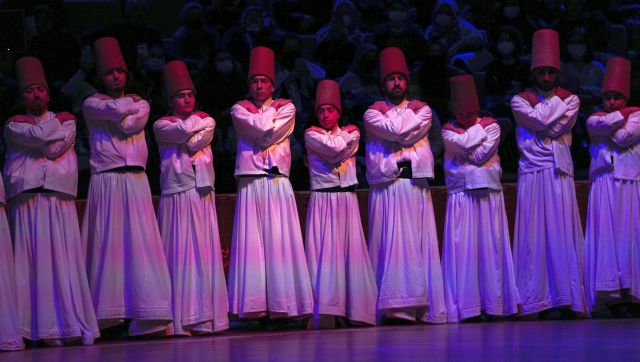)
Every December the Anatolian city hosts a series of events to commemorate the death of 13th century Islamic scholar, poet and Sufi mystic Jalaladdin Rumi. AP


)
)
)
)
)
)
)
)



